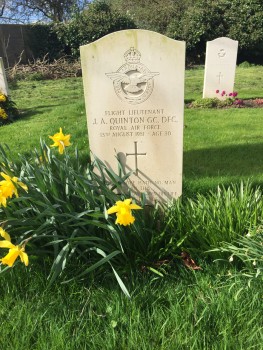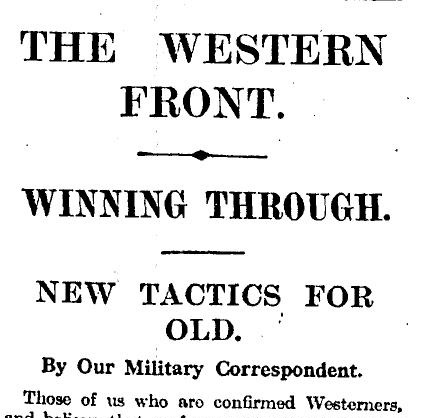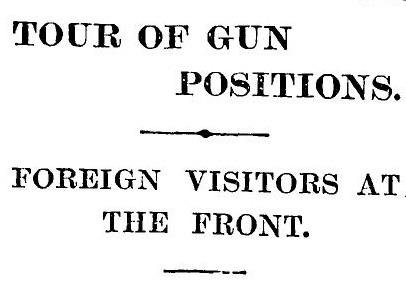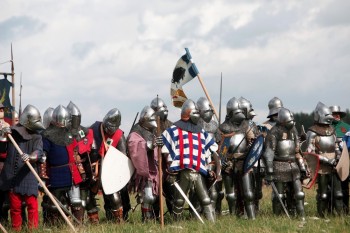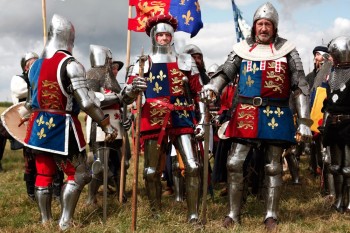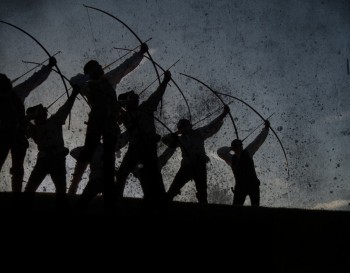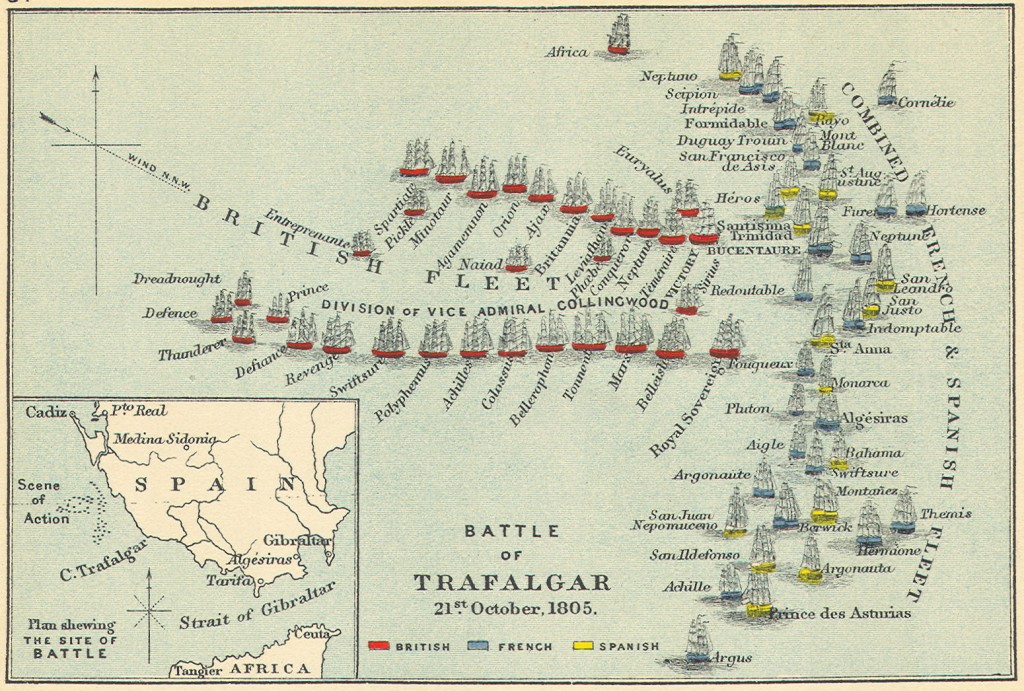Ah yes, Britain’s socialists, working tirelessly towards a world in which Vladimir Putin, Xi Jinping & Kim Jong-un are the only people with nuclear weapons. What could possibly go wrong with that?
|
|||||
|
On 2nd February 1921, John Alan Quinton was born in Brockley, south London. He would have been 95 today, had he not died, he was killed in a ‘plane crash aged 30, in the following circumstances, as recorded in his George Cross citation.
With our recent discussion of genes and selfishness, here was a man, a whole, thinking being, with an infant son of his own, and having survived WW2 as a Navigator in Mosquitos in the RAF, who was, when the ultimate challenge presented itself, prepared to give up his own life for that of a stranger. His example is a reminder that an acting human being is capable of doing things for other than ‘selfish’ reasons. Flight-Lieutenant Quinton’s final act was the ultimate demonstration that a principle – that one should do what is right when in a position of responsibility – can triumph over base instincts, a counter-point to many lesser people who have failed to do what is right in difficult situations, even when not in mortal peril.
Charles à Court Repington was a former army officer who became The Times’s military correspondent. I have mentioned him before and so far I have been pretty impressed with his analyses. But in this article (here and here), in which he considers strategy and high-level tactics, he outdoes himself. Here are his main points: 1. The Western Front is the key theatre. It’s also the nearest. Britain’s main effort must be concentrated here. So, what happened? After the catastrophe at Gallipoli, the “Easterners”, as they were known – or “cranks” as I tend to think of them – were largely ignored. The main effort was indeed put on the Western Front and that is where the war was eventually won. Co-ordination. As it happens, at Chantilly in December 1915, the Allies had already agreed to co-ordinate their efforts. Unfortunately, the Germans took the initiative at Verdun, more or less completely taking the French out of the picture. Still, the Somme, the Brusilov offensive and an Italian offensive did take place at more or less the same time. Haig continued to look for breakthroughs until about August 1917. He did so despite just about everyone around him – including Robertson, his nominal superior – thinking he was wrong. He did so in the belief – partly fed by an intelligence chief who told him what he wanted to hear – that the German army was about to crack. Cavalry. Some claim that cavalry was useful in the Hundred Days Offensive of 1918. Personally, I am doubtful. It certainly wasn’t any use beforehand with the exception of 1914. Cavalry generals. If we look at the really useless Western-Front commanders (army commanders and above) we find Allenby, Gough and French – all cavalry. The successful ones were Plumer, Horne, Byng and (belatedly) Rawlinson, of whom only Byng had any background in cavalry. That artillery was the dominant arm is beyond question. In battle after battle, if the artillery was right, victory followed. If it wasn’t, it didn’t. That’s not to say there weren’t great changes in infantry tactics and equipment, just that these were a lot less important. It took until 1917 for the artillery to acquire the shells it needed. About the only thing he gets wrong is his 150,000 figure for German casualties at Loos. The real figure was about a fifth of that. Otherwise he is bang on the money. Recent events in Germany may have led some to ask if Germany still controls its borders. Well of course the German Federation does, it had an entire Border Police Force, the Bundesgrenzschutz to do that, and it has quietly been building a Federal Police Force by merging the Railway Police with the Border Police. However, the German Federal State does not seem to regard border control as that much of a priority. It wasn’t always thus for German governments, we all know about the Berlin Wall, or the ‘Anti-Fascist Protection Rampart‘, an example of German bureaucracy showing some resolve as to who crosses its borders. The Wall was of course, the weak point in the East German border, although technically it did not divide the Germanies, but the Allied Occupation Zones from the Soviet Zone and from the DDR, and for most of the time, there was no point fleeing to comradely Poland or brotherly Czechoslovakia, but that changed in the late 1980s. At the Berlin Wall, some 138 deaths have been recorded, there may have been many more. But there was a more deadly border defence put in place by a German state, Imperial Germany, it was called the Dodendraad, a lethal electric fence, the implementation of which left, by one estimate, around 850 people killed, other reports say around 2,000 – 3,000 people were killed, including shootings etc. at the fence. You may well say ‘It doesn’t quite sound German‘, and you would be right. It wasn’t even ‘protecting’ Germany’s border, but someone else’s. The Dodendraad (Wire of Death) was put along the frontier between occupied Belgium and the Netherlands in the First World War, as a means of controlling movement over the frontier. A frontier that had two peoples with effectively one language joined by trade and family, and separated by murderous force. The Wire did not cover all of the Belgian/Dutch border, as the Kaiser did not violate Dutch neutrality by seeking to place it around Baarle-Hertog’s many borders with Baarle-Nassau. The task facing the Imperial Army was demanding, there were no Belgian power stations to power the 2,000 Volt wires along the over 200 miles of the fence, as Belgium (we are told) had no power grid at that time.
For the poor border Belgians, life was grim:
So even before the Germans sent Lenin to Russia to found and then electrify the Soviet Union, they had built a model death strip that many a socialist thinking about the good old days of East Germany could have been proud of. So, as I regularly do, I read a recent posting at Mick Hartley, which is about what nutters the rulers of Saudi Arabians are, spreading the theology of bedlam and then griping when people do what the theology says, and all the while blaming the Jews for their own ridiculousness. And then I read this comment underneath that posting, from someone called “Graham”:
QSD? Quesque c’est? I found my way to this piece (I love the internet):
… which, to me: sounds good, sounds bad, sounds don’t-know, and sounds good …
This guy goes on to say (I think) that the “Muslim Arabs” are Tunisian special forces, the Tunisians having become very pissed off with ISIS for having recently destroyed their tourist industry. So those Muslim Arabs sound semi-sane, or as semi-sane as Arabs ever are. And I also found my way to this piece of Kurdish Daily News (Kurdish Daily News, to me, sounds good) which says:
Part of my daily reading these days consists of Instapundit, and people linked to by Instapundit, telling me that the Middle East is going totally to hell, and that US Middle East policy now has no redeeming features at all. But I am unpersuaded that the answer to the Middle East’s many problems is for the Middle East to be totally conquered and then micro-managed by the USA, with everyone else just standing around and either waiting for their chance and getting it, or else hoping for the best and not getting it. US policy now seems to have been to back off, wait for some Good Guys to emerge out of the mess, and then when they eventually did, to back them with a few guns and a few missiles and a few airstrikes, but not with a huge US army stomping about making friends-that-are (and then abandoning them following an election) or friends-that-aren’t and enemies-that-are, and generally crowding out the best local answers. Is that – “leading from behind” (i.e. not actually leading at all) – such a very terrible idea? It sounds like a rather better idea than earlier ideas have been. Whether President Obama started out wanted that policy, I really do not know, but that now seems to be what is happening. This more recent posting at Mick Hartley says that if QSD beats ISIL, the big winner could end up being al-Qaida. But might not QSD first defeat ISIL, and then might not QSD, or something closely related to or descended from QSD, then turn on al-Qaida and defeat al-Qaida also? But what the hell do I know? Comments anyone? “On November 21, Iran conducted its second test of a nuclear-capable ballistic missile in direct contravention of two U.N. Security Council prohibitions, including one that incorporates the current nuclear agreement — which bans such tests for eight years.” Another report via Reuters Can anyone be in serious doubt that the deal between the US/EU and Iran to lift sanctions against the latter over Iran’s supposed co-operation over being good on nuclear tests is a crock? Another blinding result for Mr Obama’s foreign policy. We have another year of this man in the White House. In late 1915 steel helmets were introduced on the Western Front. They were not, as The Times correspondent claims, there to protect the wearer from rifle or machine-gun bullets. Indeed, as I understand it, even modern helmets are not always proof against high-velocity rounds. What they were there to do was to protect soldiers from shrapnel. Shrapnel, in case you didn’t already know, is the collective noun for steel balls being expelled from an air-bursting (or Shrapnel) shell. It was a huge killer in the First World War and the steel helmet did a great deal to save lives. One of the good things about the Brodie helmet – as it sometimes known – is that it had an internal harness. This meant that if the helmet was dented the dent was not necessarily reproduced in the wearer’s skull. On the shape, however, with a wide brim and no neck protection, I have always been in two minds. On the one hand, if the threat is from above you would have thought the shape was a good thing as it covers a large part of the wearer’s body. It is also easy to make. On the other hand, British helmets over the last 100 years have progressively given more neck protection which sounds like the British Army’s way of saying they got it wrong. By the way, in my limited experience both steel and more modern Kevlar helmets are a pain in the arse to wear. You either can’t see anything from a prone position or you can’t see anything from a prone position and get a headache. This was one of many changes to frontline equipment during the course of the war. Others included the introduction of the Mills bomb, the Lewis gun and the Stokes mortar. The shooting down of a Russian military aircraft, by Turkey, allegedly after it passed into a sliver of Turkish airspace during a mission over northern Syria might well be an isolated incident, like Gadaffi’s clashes with the US Navy over the Gulf of Sidra in the 1980s. For me, I hear an ironic but distorted echo of the shooting down of the Korean Air flight 007 by the Soviets in 1983, when it was 90 seconds from international airspace after passing briefly through Soviet airspace, but that was a civil flight and a clear case of Soviet mass murder. Whatever happened may not become clear, but why it happened is for now, even murkier. Was it a ‘gambit’, like a pawn sacrifice (the eternal lot of the military) in chess to gain a strategic advantage, a pretext to escalate the situation or to force others hands? The upshot of the Syrian refugee crisis, and the recent terrorist attacks in Paris almost seems as they were 1960s KGB/GRU operations designed to sow discord within Europe and to set countries against each other and élites against the people, with Putin having dusted down an old plan and re-worked it. But is that not over-complicating matters? I doubt that many realise that it was on 11th November 1940 that the Fleet Air Arm of the Royal Navy struck a blow at Royal Fascist Italy’s Navy that may well have slowed the march of the Axis powers in the Mediterranean and marked the first check on their advance after the fall of France. The operation, called ‘Operation Judgment‘, involved two waves of Fairey Swordfish biplanes (almost certainly the slowest surprise air attack of WW2 apart perhaps from the springing of Mussolini) attacking the Italian fleet at Taranto harbour on the ‘heel’ of Italy. The outcome was that the Italian surface fleet was severely reduced in capability, and the remnants moved further up the peninsula to Naples, thereby limiting their capability to interfere with British shipping in the Mediterranean and to re-inforce North Africa. British casualties were 2 aircraft lost, 2 men killed, 2 PoWs. The Italians lost one battleship, and had 2 battleships and 2 cruisers heavily damaged. The raid had been planned for Trafalgar Day, 21st October, but was put back due to a fire, fittingly enough to Armistice Day. A Swordfish also went on to cripple the Bismarck, and later in the War they accounted for 22 U-boats. Not a bad record at all. It has been speculated that this raid inspired the Japanese to use air power at Pearl Harbor, but perhaps emboldened would be a better term, after all, it is not as if Japan wasn’t gearing up for something by this time. The anniversary of the raid has attracted some comment, a piece here in the American Thinker (an organ of which I know little), but pointing out that it actually makes sense to attack your enemies, not to wait for them to attack you. I particularly liked this part:
You might think that that author had some people from the present-day in mind. And for those brave men of the Fleet Air Arm, flying in open cockpits at night against a major enemy harbour, I shall raise a glass of prosecco tonight, to sink something Italian. If Russia’s defense ministry really does believe that all the missiles found their intended targets, those sheep must have been up to something |
|||||

All content on this website (including text, photographs, audio files, and any other original works), unless otherwise noted, is licensed under a Creative Commons License. |
|||||
